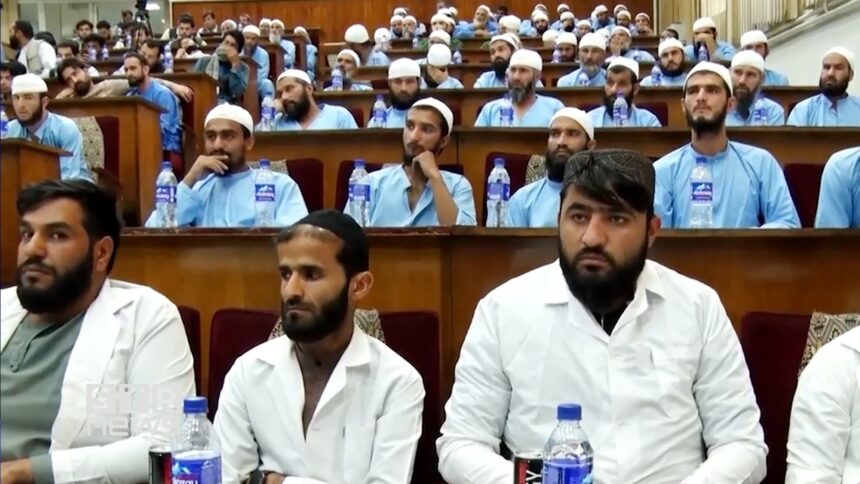In a significant step toward addressing the country’s longstanding drug addiction crisis, Afghanistan’s Ministry of Public Health announced the release and family reunification of 200 individuals who have completed treatment for substance abuse in Kabul.
At a ceremony held today, Mawlawi Abdul Wali Haqqani, Deputy Minister for Health Services, described the milestone as more than just a medical achievement. “This is a victory not only for healthcare but also for our Islamic values, Afghan culture, and the psychological and social well-being of our people,” he said.
Haqqani acknowledged the devastating toll addiction takes on individuals’ physical and mental health, as well as on their families and communities. Yet, he emphasized that addiction is a treatable condition. “With the right medication, trained healthcare professionals, and ongoing support, recovery is possible,” he stated.
The deputy minister urged families and communities to show compassion and support for those battling addiction, while encouraging recovered patients to resist relapse and focus on education and contributing positively to society.
Mawlawi Inaamullah Ammar, head of the National Addiction Treatment Program, provided an overview of the ministry’s efforts, highlighting 67 treatment centers currently operating nationwide. These include facilities dedicated to adults, women, and youth, with the capacity to treat over 34,000 patients annually. Public awareness campaigns have also reached tens of thousands through mosques, schools, and universities, educating people about the dangers of narcotics.
Speakers at the event stressed the urgent need to tackle drug abuse, particularly among young people, calling for increased employment opportunities and expanded public education to prevent addiction. They framed drug addiction as a complex global challenge that demands evidence-based policies prioritizing prevention and treatment.
Representing those in recovery, Fawadullah from Laghman province expressed gratitude to the Islamic Emirate and healthcare workers for their support, urging others to avoid drugs and dedicate themselves to their families and communities.
This announcement follows a similar initiative five months ago when 150 addicts in Kabul were discharged after completing treatment. Since the Islamic Emirate’s return to power, rehabilitation programs combining medical treatment with vocational training have been rolled out across the country, with many recovering addicts successfully reintegrated into their families.
As Afghanistan continues to grapple with widespread drug addiction, the government’s renewed focus on treatment and social reintegration reflects a holistic approach that blends medical science with cultural and religious values to rebuild lives and communities.













